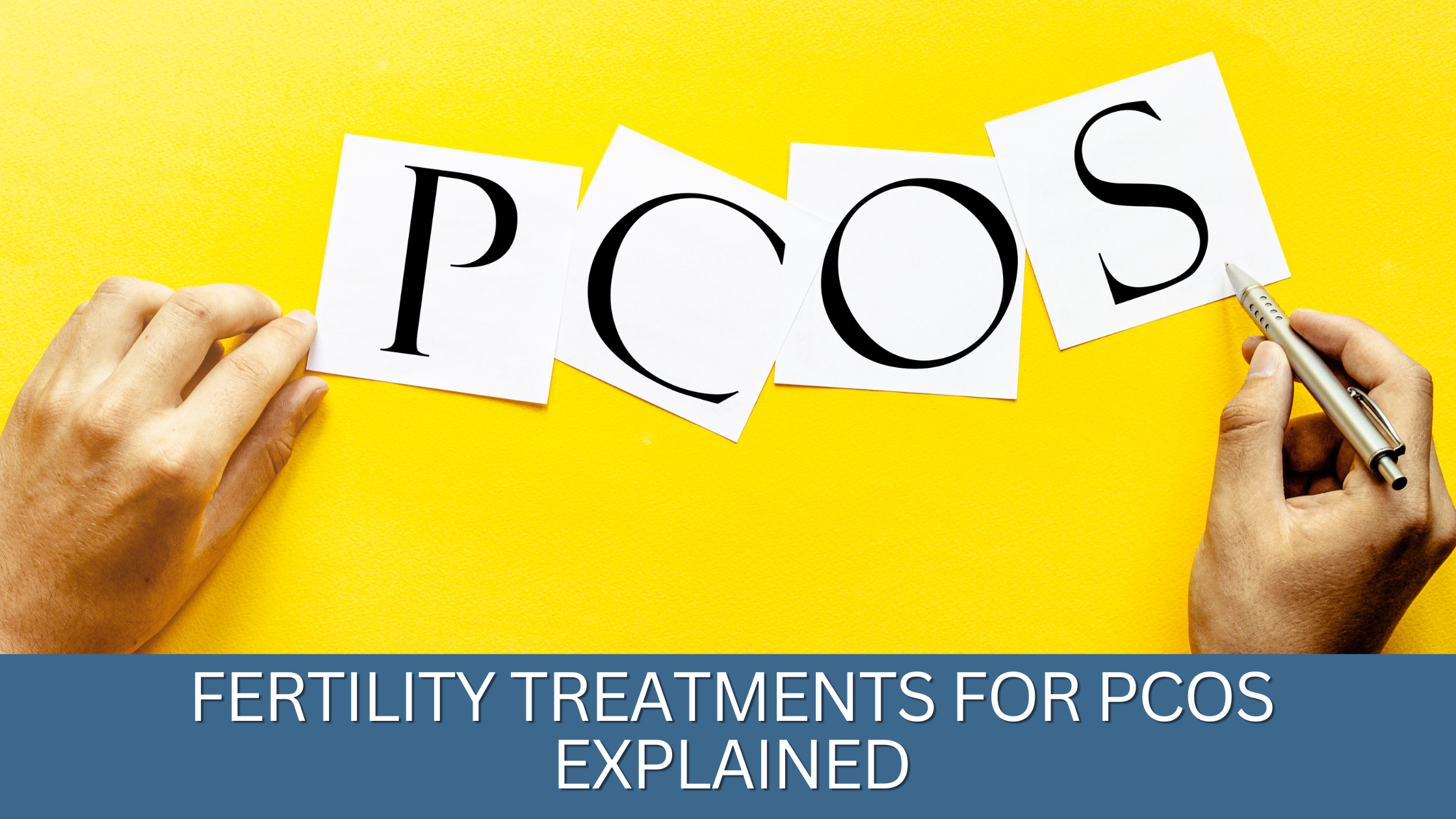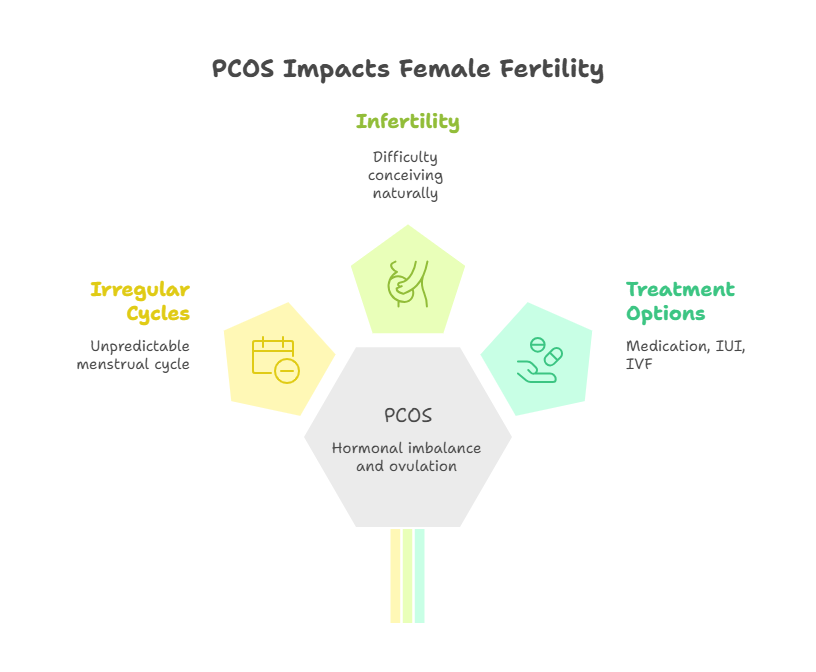
Polycystic Ovary Syndrome (PCOS) is something a lot of women are dealing with today. As per the World Health Organization (WHO), “PCOS affects an estimated 6–13% of reproductive-aged women.” You might be suffering from PCOS without even realizing it. PCOS can make your menstrual cycle unstable, affect ovulation, and make getting pregnant a lot harder than it should be. If you are in the same boat, then you might be wondering what you should do.
The usual advice? Start with medication. Maybe your doctor has already talked to you about Metformin, Letrozole, or birth control pills. These can help regulate things a bit, but let’s be honest, when you are actually trying to conceive, they are not always enough. For some, they work. For others, not so much.

When Medication Alone Is Not Enough
Generally, the first thing doctors do if you have PCOS is to prescribe medicines. Most of the medicines that are generally prescribed to treat PCOS are meant to stimulate ovulation. But you may or may not respond to these medications. If you have been taking medication for several months without any sign of ovulation or pregnancy, you should consider additional support. Even after taking medicines, if you are experiencing missed periods, then the treatment is not working for you. For this, you should speak with a fertility specialist who can offer a more personalised plan that takes into account the complexity of PCOS.
The Role of IUI in PCOS-Related Infertility
If you are suffering from PCOS and even after taking medications, you are unable to get pregnant, then you may consider Intrauterine Insemination (IUI). IUI is a procedure in which specially prepared sperm is placed directly into the uterus during the time of ovulation. This treatment increases the chances of the sperm meeting the egg by reducing the distance it needs to travel. You can learn more about IUI here.
For many women with PCOS, IUI is paired with medication that helps the ovaries release one or two mature eggs. This combination gives you a more predictable cycle and helps you time everything better.
IUI can be a good next step if medication is helping you ovulate, but you still are not getting pregnant. It just gives things a little boost. You are not alone in this. Many women with PCOS go through the same journey and find that IUI helps move things forward.
When IVF Makes More Sense
Sometimes, even with the best efforts, IUI is not enough. Or maybe your cycles are still too unpredictable, and it is hard to know when or how your body will respond. If this is what is happening with you, then In Vitro Fertilisation (IVF) becomes a good treatment option.
With IVF, your eggs are retrieved, fertilised with sperm in the lab, and then placed back into your uterus once they have developed into embryos. It gives fertility specialists far more control, especially in cases where PCOS is making your cycle difficult to work with.
Here is the thing about PCOS that catches a lot of people off guard. You might have tons of follicles showing up on your ultrasounds, which sounds like it should be great news, right? More follicles mean more eggs, which should mean better odds. Except it doesn’t always work that way. Those follicles don’t necessarily turn into good-quality, mature eggs that are actually ready to do their job.
That is where IVF really shines. Your doctor can watch exactly how your ovaries are responding to the medications day by day. If things are moving too fast or you’re responding too strongly, they can dial it back before you end up overstimulated. And trust me, you don’t want that. Women with PCOS are way more likely to have their ovaries go into overdrive, and it’s not pleasant.
But here is what is great about IVF, you get options. Maybe your body is all revved up from the stimulation medications, your hormones are everywhere, and honestly, you’re just exhausted from the whole process. You don’t have to push through with a transfer right then. You can freeze those embryos, take a break, let your body reset, and come back when everything feels more settled. A lot of women actually get better results that way because their body isn’t trying to support a pregnancy while still dealing with all those medications.
The Power of Lifestyle Changes
Only depending on medications or fertility treatments is not enough if you are suffering from PCOS, you have to make efforts to change your lifestyle as well. Lifestyle changes are slow to show results, but they can help regulate your hormones and support fertility treatments.
Start by looking at your food. Focus on having a balanced diet and include low glycaemic index foods, fibre-rich meals, and minimal sugar. This helps reduce insulin spikes, which are common in PCOS. Apart from diet, even doing light exercises such as walking or yoga can help regulate your menstrual cycle. While you fix your diet and exercise, do not forget to sleep well and keep stress under control. If your body is under constant stress, it will release a hormone called cortisol that impacts your reproductive organs.
Living with PCOS can be challenging, especially when you are trying to start or grow your family. But with the right guidance and care, pregnancy is absolutely possible. At London IVF Centre, our clinics in Visakhapatnam, Kakinada, Rajahmundry, Vizianagaram, and Tuni offer specialised care for women with PCOS. Book your consultation today.


